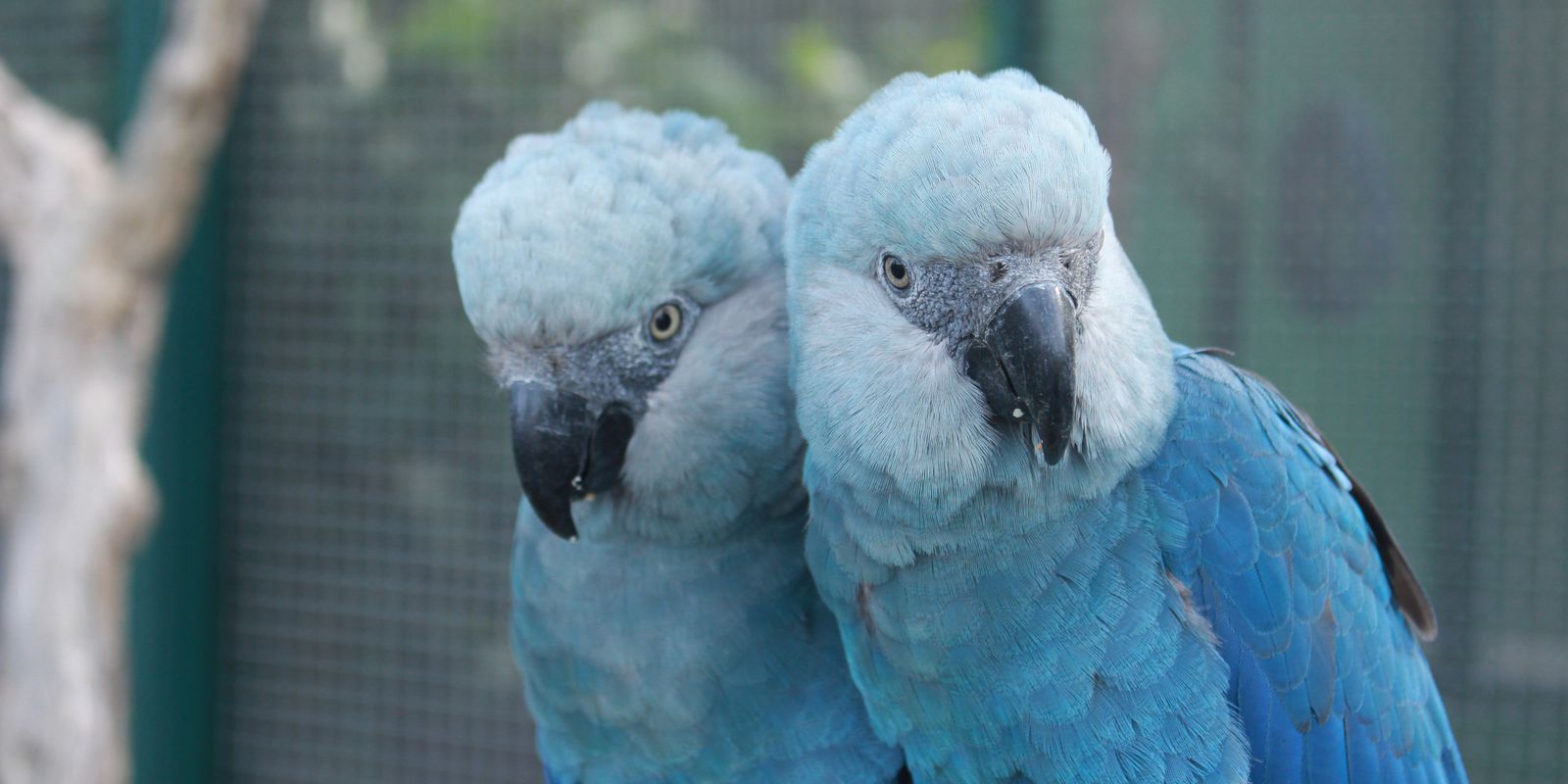Brazil should receive another wave of Spix’s Macaws (Cyanopsitta spixii) in 2023. Between 30 and 50 birds should arrive in the country, coming from Germany, as part of the project to reintroduce the species in the Brazilian caatinga, two decades after being considered extinct in nature.
According to Camile Lugarini, executive coordinator of the National Action Plan (PAN) for the Blue Macaw, from the Chico Mendes Institute for Biodiversity Conservation (ICMBio), the idea is that the animals arrive in Brazil next month.
The first group of 52 Spix’s Macaws arrived in Curaçá in 2020, coming from a German breeding site. It was in this municipality in Bahia that the Brazilian government created environmental conservation units to guarantee the protection and habitat of these animals in nature.
A huge adaptation enclosure was also built there so that the macaws relearn how to live in the wild. The first eight birds were reintroduced into the wild in June this year. On the last 10th, 12 more were released. The idea is to release 20 birds per year over the next two decades.
Around 30 macaws are kept in captivity, at the project’s headquarters in Curaçá, as reserves for reintroduction and as breeding stock. Three puppies have already been born in the nursery in Bahia and must be released into the wild, as well as puppies born in a breeding center in Minas Gerais, Fazenda Cachoeira.
However, the main source of animals for reintroduction remains the German breeding farm ACTP. For the arrival of this new batch, coming from Germany, the researchers are waiting for the release of agricultural surveillance in Brazil due to an outbreak of avian flu that affects Europe.
“If it is not possible to bring the birds in January, we will check if we can manage to release the animals that were born here in Brazil, because an important thing is the number of birds. The higher the number in the group, the greater the chances of success. It’s no use releasing one or two, or three or four. In addition to to have a whole criterion, which takes into account genetics and health, the number of animals is also an important factor”.
In nature, the macaw’s macaws have, as their main risk to survival, the existence of predators. Of the 20 Spix’s macaws released, three were killed by birds of prey. There is also the risk of dispersal to areas where researchers will not be able to monitor them and the threat of capture by traffickers.














